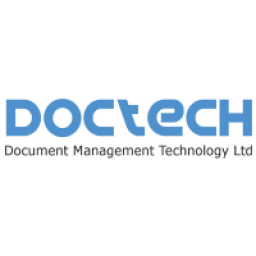Positive Planet's August 2022 Offsetting Projects
Sierra Leone Safe Water Project In Kono District, Sierra Leone, many existing safe water sources have fallen into disrepair due to the mismanagement of program...
Sierra Leone Safe Water Project In Kono District, Sierra Leone, many existing safe water sources have fallen into disrepair due to the mismanagement of program...
As one of the UK’s leading full-service security providers we pride ourselves on committing to investing in its people. This has now been recognised by its rece...
 Leisureguard Security (UK) LTD
Leisureguard Security (UK) LTD
Leisureguard Security's reputation as one of the UK’s leading full-service security providers and has recently been enhanced, when the company won the 'Professi...
 Leisureguard Security (UK) LTD
Leisureguard Security (UK) LTD
When it comes to the the prevention of data loss, do you know how secure your business data is? You may have systems in place to prevent cyber attacks or softwa...
 DocTech
DocTech
Have you ever considered becoming a Respite Foster Care? Whether it’s a short weekend break or a couple of weeks, respite foster care allows time for familie...
Ensuring the security and safety of your archived documents needs to be a priority given the confidential nature of so much information that is processed by a b...
 DocTech
DocTech
This is a perplexing question and one I have been determined to fully understand.
The term Corporate Social Responsibility was officially coined in 1953 by American economist Howard Bowen in his publication Social Responsibilities of the Businessman. Traditionally CSR is aimed at encouraging companies to be more aware of the impact of their organsiation on the rest of society. Social Responsibility is an approach that contributes to sustainable development by delivering economic, social and environmental benefits for all stakeholders. It is a concept with many definitions and practices and one that addresses many and various topics such as human rights, corporate governance, health and safety and environmental effects. The purpose of Social Responsibility is to drive change towards sustainability.’
A new standard for CSR relevant for the next century
I wanted a new definition that was less fluffy at the edges and one that applied to all organisations across all sectors no matter how small or large. Social responsibility should be for everyone.
Having been asked by a large regional business membership group to look at establishing an accreditation for social responsibility I needed a new definition, a framework underpinned by an overreaching statement, and arrived at the following.
‘Social Responsibility allows you to enrich the quality of lives for all by investing in social value as an essential part of an organisations culture. This provides purpose and impact and will ensure a sustainable and profitable business. It will help to build a better world for future generations by improving the environment and ensuring a cohesive community to live and work in.’
Now there was the question of challenging the C in CSR to make it far more inclusive
Increasingly the term ‘corporate’ has been challenged. This is because it excludes a large number of stakeholders, specifically the third and public sectors and because ‘corporate’ does not encompass sole traders or smaller SME’s. For this reason we have defined the ‘C’ in CSR to be more inclusive, for example:
Corporate Social Responsibility Large Companies - (Private Sector)
Company Social Responsibility Sole Traders and SME’s - (Private Sector)
Community Social Responsibility Local Authorities, Schools, Hospitals etc - (Public Sector)
Charitable Social Responsibility Charities - (Third Sector)
Consumer Social Responsibility Products & Services -
Citizen Social Responsibility Training & Workshops -
All of us - Collective Social Responsibility
And finally this new standard is defined by a truly holistic framework that allows all organisations to look at what they are already doing against the four CSR pillars of Environment, Workplace, Community and Philanthropy. Each Social Responsibility Pillar is designed to help you benchmark, measure, record, report and communicate impacts on areas such as energy performance, recycling, staff engagement, health and well-being, community engagement and supporting local and national charities. This provides a structure that will help an organisation plan and act responsibly.
Having now established a new standard we then developed the CSR Accreditation as a visible testimony of independent, expert recognition to being a socially responsible organisation. The accreditation provides a roadmap for planning future activity and is very much the start of a journey that delivers impact purpose and social and financial value. The application process provides a simple and straightforward template where you can record activity against the Social Responsibility Four Pillars. The application is assessed by an independent assessment panel that expects to see evidence to support the claims made such as links to policies, testimonials, staff engagement, financial savings etc. We believe that for good story telling there must be evidence of good story doing.
The question is why be a responsible business?
Isn’t CSR just a distraction, an unnecessary cost, a nice to have if you have time ?. This is definitely not the case. Social responsibility is driving forward successful businesses. A structured CSR programme is the practical step developed out of an organisation’s set of meanings, beliefs and values, namely its culture. This sets out that an organisation’s social responsibility for its operational impact on society is integrated into the culture. It is a powerful force that gives meaning to people’s lives, reduces uncertainty and creates stability but it is also the determinant of the success or failure of an organisation.
There is now no doubt about the impact of CSR on profitability for an organisation
Social responsibility is a new profit centre. The future shape of business will be measured in both social and financial value. The clear drivers for CSR can be seen in a return on social investment (ROSI) and a social return on investment (SROI). CSR now drives an organisations brand and business reputation and is a powerful emotional investment that has a positive impact on all stakeholders. It makes us feel good because it is about something good. It is also a way to add value and give greater purpose to our time beyond the job role and title. This is about staff engagement, improved productivity and mental health and wellbeing. Employees want to feel proud of the organisation they work for. An employee with a positive attitude towards the company, is less likely to look for a job elsewhere. Being a responsible, sustainable business makes it easier to recruit new employees. There appears to be a change in mindset from those seeking employment for the first time. This may be about underpinning value for business in engaging with the next generation from a CSR perspective. In other words, an organisation that delivers social value. This is about lining up your values with those of the next generation.
And there is the measurable operational costs savings and better financial performance by reducing resource use, waste and emissions, you can help the environment and save money too.
It also is easier access to capital. Investors who are pouring money into companies want to know that their funds are being used properly. Not only does this mean that corporations must have sound business plans and budgets, but it also means that they should have a strong sense of corporate social responsibility. Investors care about corporate social responsibility and so should companies.
According to the London Stock Exchange Investors now routinely analyse information on CSR (ESG) performance to gain a better understanding of companies’ future prospects. 60% of assets managed for EU investors incorporate sustainable investment strategies. It is now commonplace to be scored on your CSR performance when tendering for both public and private projects. Already one out of three local authorities insist on evidenced CSR as part of the tendering process.
CSR is about the future: discovering your sustainable and profitable potential and achieving it
Customers want to trust organisations they engage with. Employees want to work for values-driven employers and investors want to know that a company is addressing its ethical responsibility. But it is also about delivering social value, and investment in something much bigger than the organisation. It will help with clarity about want you want to get out of business and from your life. It becomes a road mapfor delivering greater purpose and value to all stakeholders. There has also been a change in mind set - COVID 19 a game changer. The coronavirus pandemic has actually re-introduced us to a more authentic normal, one in which we have a stronger sense of community and social responsibility. It feels like we lost sight of those values and now we are beginning to see them again. The world has changed dramatically and the focus on social responsibility has become far more important. We have already witnessed some incredible acts of kindness, support for struggling businesses, charities and individuals and positive business practices. This will become normal as consumers and stakeholders expect increased social value and form the
businesses they are engaged with. So, ask yourself what is the cost of not being socially responsible? Increased absenteeism, retraining, poor engagement, lost social capital, losing tenders, poor reputation, dropped from the supply chain, not attracting new talent and a high risk investment.
Can you afford not to be a socially responsible organisation?
Start your CSR Journey now and plan for future success as a sustainable and profitable organisation.
To find out more visit www.csr-accreditation.co.uk

Join Our Adoption Information EventAre you considering adoption, or just exploring your options? Our online Adoption Information Events are the perfect place to...
 Caritas Care
Caritas Care
Networking, GB Update and New ConnectionsAs our share platforms have continued to grow, so too have our online meet ups! Join us for our next fortnightly meet...
Are you curious about fostering but unsure where to start? Join Caritas Care for “Discover Fostering – Make a Difference”, an information session designed to he...
 Caritas Care
Caritas Care
Join Our Adoption Information EventAre you considering adoption, or just exploring your options? Our online Adoption Information Events are the perfect place to...
 Caritas Care
Caritas Care
The Konsortia Partnership is a vibrant community of local, professional small and medium-sized businesses (SMEs) in property and construction, based in Manchest...
 The Konsortia Partnership
The Konsortia Partnership
Networking, GB Update and New ConnectionsAs our share platforms have continued to grow, so too have our online meet ups! Join us for our next fortnightly meet...